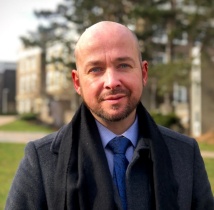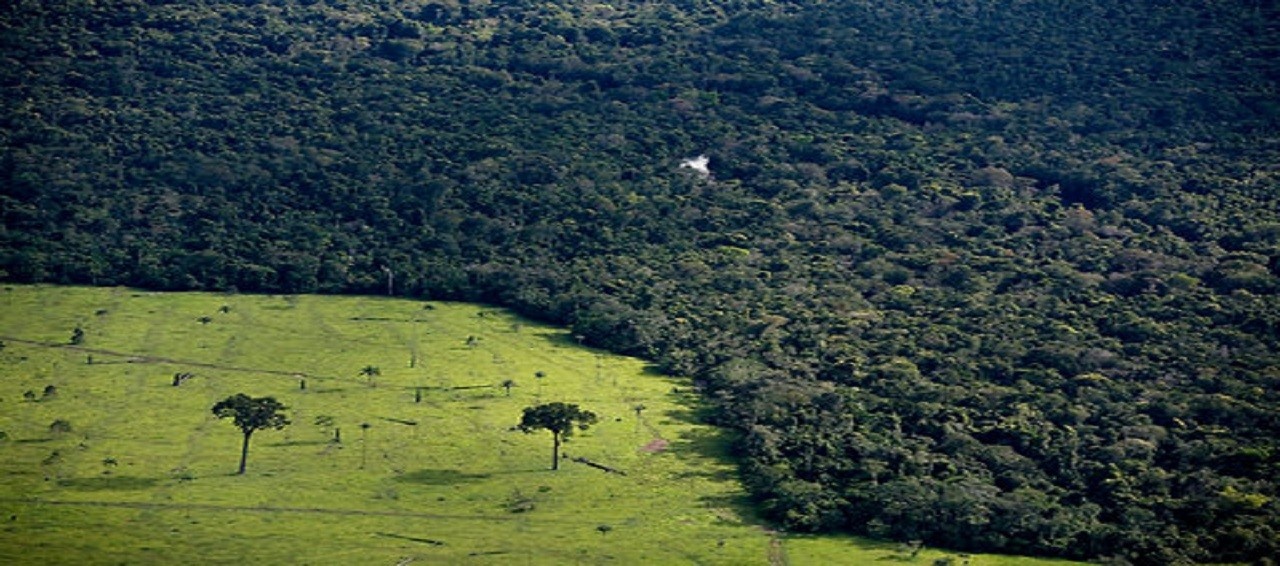Robert Huish
Associate Professor

to contact
Email: huish@dal.ca
Phone: 902-494-2979
Twitter: @ProfessorHuish
Mailing Address:
Marion McCain Building
6135 University Ave.
Dalhousie University
PO Box 15000
Halifax, NS, Canada
B3H 4R2
Office location:
Marion McCain Building 2197
- Sanctions
- International Relations
- Activism and Social Justice
- Global Health
- COVID-19 Stigma
Education
- B.A. (Hons.) Queenâs Universityâ¨â¨
- M.A.Ìı Queenâs Universityâ¨â¨
- Ph.D.ÌıÌı Simon Fraser Universityâ¨
Dr. Huish is the host of the Podcast "GDP" which is the Podcast on all issues related to International Development. .
In response to online learning during the COVID-19 pandemic, Dr. Huish offers a course on managing pandemics through cooperation and collaboration. .Ìı
Research Interests
With support from the Nova Scotia COVID-19 Health Research Coalition, I am currently working on
Broadly, my research explores global health inequities, and the role of economic sanctions in shaping those inequities, as well as the role of social justice in resisting them. ÌıMy current research looks at how donor nations are responding to the call for greater global health equity, and specifically how economic coercive measures (sanctions) impact the capacity of many countires in the global South to work with each other to improve health for all. Ìı
I also pursue research on how sanctions impactÌıhuman rights and security issues.ÌıÌıIn particular this work exposes how countries like Russia and North Korea continue to violate human rights, and how it pursues military aggression despite . Click here for my interviews on:Ìı;Ìı; and onÌı
Other areas of research includeÌıÌıÌıand with special attention to Cuba, and how this facilitates comprehensive development.
At the moment I am currently working on the following projects:
- Human Rights Activism in North Korea.Ìıâ¨
- The impacts of climate change and health in pacific island countries)
- The Impacts of Sanctions on Health and Security.
Teaching Interests
(global health; activism & resistance; experiential learning)
My teaching interests include topics on global health, poverty and human rights, neoliberal globalization, and . ⨠ÌıÌı
For more on this approach, check out this interview withÌı, â¨as well asÌı
I'm also happy to introduce a new course on Pandemic management in the time of COVID-19.Ìı Ìıcombines podcast learning with game simulation to develop collaborative management strategies for students and policy makers.
Ìı
Books
Refereed Journal Articles and Book Chapters:
Huish, Robert. (2021). âGlobal citizenship amid COVID-19: why climate change and a pandemic spell the end Ìıof international experiential learningâ.ÌıThe Canadian Journal of Development Studies.Ìı10.1080/02255189.2020.1862071
Huish, Robert (2020).Ìı âCubaâ in Georgeou N., & Hawksley C. (eds).ÌıState Responses to COVID-19: a global snapshot at 1 June 2020. Sydney: Western Sydney University Press.
Huish, Robert (2020).Ìı âCanadaâ in Georgeou N., & Hawksley C. (eds).ÌıState Responses to COVID-19: a global snapshot at 1 June 2020. Sydney: Western Sydney University Press.
Huish, Robert (2018). Going where no one should go: Experiential Learning without making the world your classroom. Journal of Global Citizenship and Equity Education. 6(1) 2 - 21.
Huish, Robert. (2018).Ìı No Secret Cure: Why the 1970s Hold the Secret to Cubaâs Health Paradox in Kirk, Emily, Clayfield, Anna, & Story, Isabel (eds.) Cubaâs Forgotten Decade: How theÌı1970s Shaped the Revolution.Ìı New York: Lexington.
Huish, Robert, (2018), âPoverty, Hunger and Inequalityâ, inÌıE-Learning Module on Operationalizing the Right toÌıDevelopment in Implementing the Sustainable Development Goals,ÌıKanade, M; Puvimanasinghe S; Aginam O; Schwartz P eds.Ìı(Geneva, Ciudad Colon and Kuala Lumpur: UN, UPEACE and UNU-IIGH), Chapter 4.
Huish, Robert (2017). How to Sink the Hermit Kingdom:Ìı Improving Maritime Sanctions against North Korea.Ìı Canadian Naval Review. 13(2). 5- 10.
Huish, Robert. (2016). âWanting to Care: A Comparison of the ethics of health worker migration in Cuba and the Philippines,â in Luginaah, Isaac, Bezner Kerr, Rachael (eds.)ÌıGeographies of Development and Health. London: Ashgate.
Darnell, Simon & Robert Huish. (2015). Cuban Sport Policy and South â South Cooperation: An Exploration of the Escuela Internacional de Educación FÃsica y Deporte. International Journal of Sport Policy and Politics. 7(1), 123 â 140.
Darnell, Simon & Robert Huish (2015). âCuban Sport and the Challenges of South â South Solidarity,â for Hayhurst, L. and Kay, T. (eds) Beyond Sport for Development: Transnational Perspectives on Theory, Policy and Practice. London: Routledge.
Huish, Robert. (2014). Why Does Cuba 'Care' So Much? Understanding the Epistemology of Solidarity in Global Health Outreach. Public Health Ethics;â¨7(3), 261 â 276.
Huish, Robert, & Simon Darnell. (2014). âCuban Sport Development: Building Capacity from el Parque to the Podium,âÌı in Brenner, Philip, Marguerite Rose Jiménez, John M. Kirk, & William Leogrande, (eds). A Contemporary Cuban Reader â 2nd Edition. New York: Rowman and Littlefield. 367 â 372.
Huish, Robert (2014). The Heart of the Matter: The Impacts of Cuban Medical Internationalism in the global South. Cuba in a Global Context: International Relations, Internationalism, and Transnationalism. Cathie Krull (ed.) Gainsville: University Press of Florida. 176 â 191.
Huish, Robert (2013). âDissent 101: Teaching the âdangerous knowledgeâ of practices of activism.â Canadian Journal of International Development Studies. 34(2). 364- 383.
Huish, Robert, Thomas Carter & Simon Darnell, (2013). The (Soft) Power of Sport: The Comprehensive and Contradictory Strategies of Cubaâs Sport-Based Internationalism.Ìı International Journal of Cuban Studies. 5(1), 26 â 41.
Huish, Robert (2012). âThe Ethical Conundrum of International Health Electives inÌıMedical Education.â Journal of Global Citizenship & Equity Education. 2(1).Ìı 1-19.
Huish, Robert, Simon Darnell (2012). âSolidarity, counter-hegemony andÌıdevelopment: Exploring Cubaâs sport-based internationalism. Canadian Journal of Latin American and Caribbean Studies. 36(71), 139 â 164.
Collins, Damian, Sébastien Flueret, Robert Huish, Anne Cécile Hoyez,Ìı (2011).ÌıRegards croisés sur les geographies de la santé Anglophone et Francophone, in Santé de géographie. Paris: Press Economica-Anthropos.
Huish, Robert (2011). Punching Above its Weight: Cubaâs use of sport for South-South Solidarity. Third World Quarterly 32(3). 417 â 433.
Evert, Jessica, Robert Huish Gary Heit, Scott Loeliger, Evaleen Jones, SteveÌıSchmidbauer (2011). Global Health Ethics. Oxford Handbook of Neuroethics. Judy Iles & Barbara Sahakian, (eds). The Oxford Handbook of Neuroethics. New York: Oxford University Press.
Huish, Robert and W. George Lovell (2010). Bajo los volcanes: La Influenca deÌıGuatemala en José MartÃ. ²Ñ±ğ²õ´Ç²¹³¾Ã©°ù¾±³¦²¹. 52. 87 â 110.
Spiegel, Jerry and Robert Huish (2009). Canadian Foreign Aid for Global Health:ÌıHuman Security Opportunity Lost. Canadian Foreign Policy. 15(3) 60 â 84.
Huish, Robert and John M. Kirk (2009). Cuban Medical Internationalism in Africa:ÌıThe Threat of a Dangerous Example. The Latin Americanist. 53(3) 125Ìı - 139.
Huish, Robert (2009). How Cubaâs Latin American School of Medicine challengesÌıthe Ethics of Physician Migration. Social Science & Medicine. 69(3) 301 â 304.
Parkes Margot, Spiegel Jerry, Breilh Jaime, Cabarcas Fabio, Huish Robert, YassiÌıAnnalee. (2009). Promoting the health of marginalized populations in Ecuador through international collaboration and educational innovations Bulletin of the World Health Organisation.Ìı 87(4), 312 â 319.
Huish, Robert. (2008). Human security and food security in geographic study:ÌıKnowledge translation, concepts and elusive theory. ÌıGeography Compass. 2(5) 1386 â 1403.
Spiegel, Jerry, Robert Huish, Klaudia Dmitrienko, Andrea A. Cortinois (2008).ÌıCanadian and Australian Health Aid, in Hanssonm Emily et. al. (eds.) Global Health Watch 2. London: Zed Books. 317 â 333.
Huish, Robert (2008).Ìı Going where no doctor has gone before: ÌıThe role ofÌıCuba's Latin American School of Medicine in meeting the needs of some of the world's most vulnerable populations. Public Health. 122(6) 552- 557.Ìı (WHO International Joint Special Issue, âTowards a Scaling-up of education for health workers.â)
Huish, Robert & Jerry Spiegel. (2008). Integrating health and human security intoÌıforeign policy: Cubaâs surprising success. International Journal of Cuban Studies. 1(1) 1 â 13.
Huish, Robert and John M. Kirk (2007). Cuban Medical Internationalism: theÌıdevelopment of the Latin American School of Medicine and human-resource-based healthcare provision. Latin American Perspectives. 34(6) 77 - 92.
Ìı
Ìı
Ìı
Ìı
